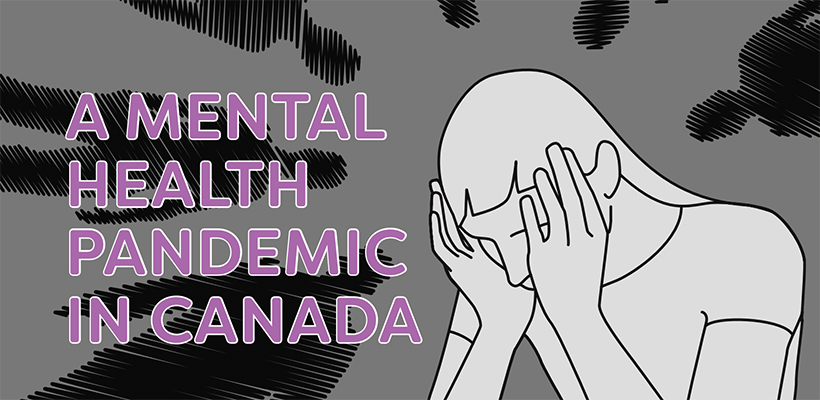
Significant numbers of Canadians are struggling with their mental health, according to recent polls. One in three Canadians are struggling with their mental health, according to an Angus Reid poll released in late January.
Canadians have been caught in the perfect storm with multiple factors leading to a mental health crisis, including the length of the pandemic, the long periods of isolation from friends and family, financial stress from reduced hours and lost jobs, increased childcare responsibilities and fear about the virus.
While the vaccine has provided a lot of relief, the pandemic continues, worsening people’s anxiety and depression.
“I want our members to know you are not alone and there is a lot of help and resources available to help you through the challenges you are facing,” said President Wayne Hanley.
Rick Young, the local union’s Health and Safety Representative, shared his insight into the mental health crisis in Canada.
Mental Health tips and resources, including Crisis Line information linked here
What impact has COVID-19 had on people’s mental health?
Young: The pandemic pushed the topic of mental health to the forefront as it created or intensified crises that we were experiencing simultaneously.
Our members and the general population continue to experience an unprecedented global health, social and economic crisis that has affected every area of our lives.
Collectively, we have been struggling with fear and uncertainty about our health and the health of our loved ones.
We’ve been concerned about employment and finances, and the social isolation that comes from the necessary but difficult public health measures such as quarantining, lockdowns and physical distancing.
With all that we have experienced over the last two years, more and more people are feeling anxious, depressed, fearful, hopeless and traumatized. It’s important to note that the end of the pandemic will not end this crisis.
It’s been shown that the impact on mental health outlasts the physical impact of traumatic events when they occur. As a result, the response to the impact on our mental health must be long term.
What are the issues people are facing that is worsening their mental health?
Rick Young: The Canadian Mental Health Association recently released a poll that found that 50% of Canadians reported worsening mental health since the pandemic began with many feeling worried and anxious.
Canadians are concerned about their finances, concerned with being able to put food on the table, and concerned about being safe from physical or emotional domestic violence.
Only 21% of respondents reported feeling hopeful which suggests that 79% are feeling hopeless.
What are signs that your mental health is suffering?
Young: It’s important to remember that we are all different and we all have different windows of tolerance.
It should be noted that it is absolutely normal to see increased mental health suffering during an abnormal situation.
Being hard on ourselves or judgmental towards others will not be helpful.
One of the obvious signs of a deterioration of one’s mental health is an increase in alcohol consumption or substance use (including prescription pills or cannabis).
Difficulty sleeping or conversely oversleeping are also signs that your mental health could be suffering. Overeating or loss of appetite are also other signs.
New ongoing physical ailments or chronic conditions, especially stomach problems can also be signs of deteriorating mental health.
During times of stress, our bodies produce large quantities of cortisol and adrenaline which can affect organs negatively especially when stress or anxiety is ongoing with little recovery time.
A lack of interest in activities you previously enjoyed can be a sign of depression and intrusive thoughts or feelings that are persistent, frequent or interfere with your day-today life can be symptoms of anxiety or depression.
Finally suicidal thoughts must be taken seriously. If you or anyone you know are experiencing suicidal thoughts, professional assistance should be sought out immediately.
Was there a mental health crisis in Canada before the pandemic?
Young: Before the pandemic, there was a societal shift occurring over a number of years in the way we viewed mental health.
It was a positive one as we began to dismantle the stigma that surrounded the topic of mental health. It’s fair to say that Canada was already in the midst of a mental health crisis prior to COVID-19 with 1 in 4 people experiencing some form of mental health issue at some point in their lives.
What are some ways to alleviate mental health challenges?
Young: It’s important to be kind to yourself, talk regularly to friends and/or family, exercise regularly and eat balanced meals (with fruits and vegetables), and unplug from social media and your devices.
Mental Health tips and resources, including Crisis Line information linked here










